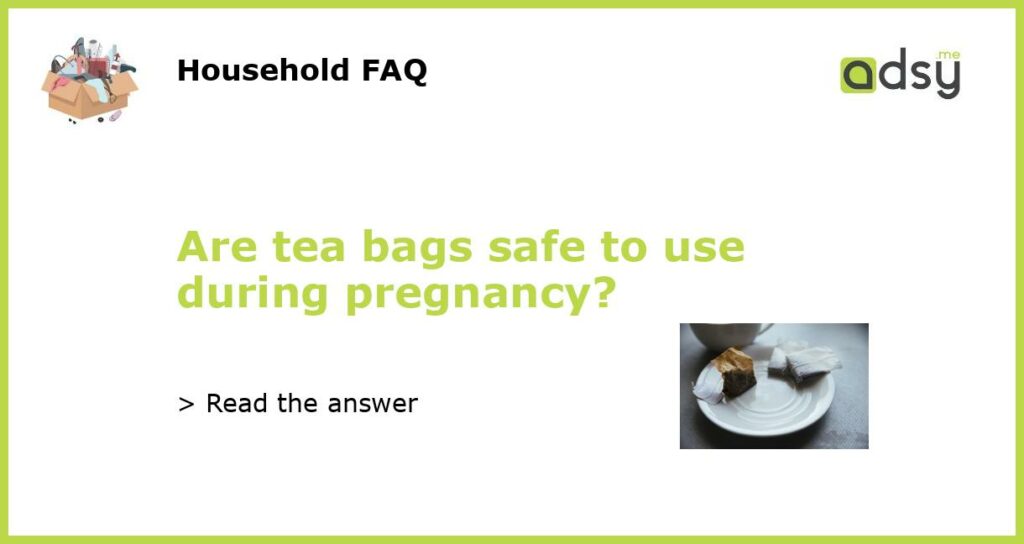Tea Bags Safety During Pregnancy: Everything You Need to Know
When you’re pregnant, it’s only natural to be concerned about the safety of certain foods and beverages. One common question that often arises is whether tea bags are safe to use during pregnancy. In this article, we’ll dive into the topic and provide you with all the information you need to make an informed decision.
Understanding the Potential Risks
Before we answer the question of whether tea bags are safe during pregnancy, it’s essential to understand the potential risks that may be associated with certain teas. Some herbal teas contain ingredients that could pose a risk to pregnant women and their unborn babies. For example, certain herbs, such as chamomile and peppermint, have been linked to increased risk of miscarriage and preterm labor when consumed in high amounts.
Furthermore, some teas may contain caffeine, which is known to have potential adverse effects on pregnancy when consumed in excess. High caffeine intake during pregnancy has been associated with an increased risk of low birth weight and preterm birth. It’s important to note that the caffeine content can vary significantly between different types of teas.
The Importance of Moderation
While certain teas may have potential risks associated with them, the key to safely enjoying tea during pregnancy is moderation. As with many things during pregnancy, it’s all about finding the right balance. In general, drinking one to two cups of tea per day is considered safe for most pregnant women.
However, it’s crucial to consult with your healthcare provider before making any changes to your diet, including the consumption of tea. Your healthcare provider will be able to provide personalized guidance based on your individual health status and any specific concerns you may have.
Choosing Safe Tea Options
When it comes to selecting tea during pregnancy, it’s essential to choose safe options. Opting for commercially packaged tea bags from reputable brands is generally considered safer than loose leaf teas or herbal preparations. Commercially packaged tea bags are usually produced under controlled conditions, making them less likely to be contaminated with harmful bacteria.
Some widely recognized safe tea options for pregnant women include ginger tea, rooibos tea, and certain fruit-infused herbal teas. These teas are typically caffeine-free and do not contain any known harmful substances when consumed in moderation.
Other Considerations and Precautions
While tea can be enjoyed during pregnancy with proper moderation and safe choices, there are a few additional considerations and precautions to keep in mind:
- Avoid excessive consumption of tea, particularly those known to have high caffeine content. Limit your intake to one to two cups per day.
- Steer clear of herbal teas or herbal preparations that contain ingredients known to be potentially harmful during pregnancy, such as chamomile, peppermint, or black cohosh.
- Consider opting for decaffeinated teas if you enjoy the taste of certain teas but want to avoid caffeine.
- Be cautious of tea blends or ingredients that claim to have “medicinal” properties, as they may not be thoroughly tested or regulated for safety during pregnancy.
- Always consult with your healthcare provider before consuming any teas or herbal preparations to ensure they are safe for you and your baby.
The Bottom Line
Tea bags can be safe to use during pregnancy when consumed in moderation and with proper precautions. It’s essential to choose safe tea options, limit caffeine intake, and consult with your healthcare provider for personalized guidance. Remember, every pregnancy is unique, and what is safe for one person may not be safe for another. When in doubt, it’s always best to err on the side of caution and seek professional advice.






